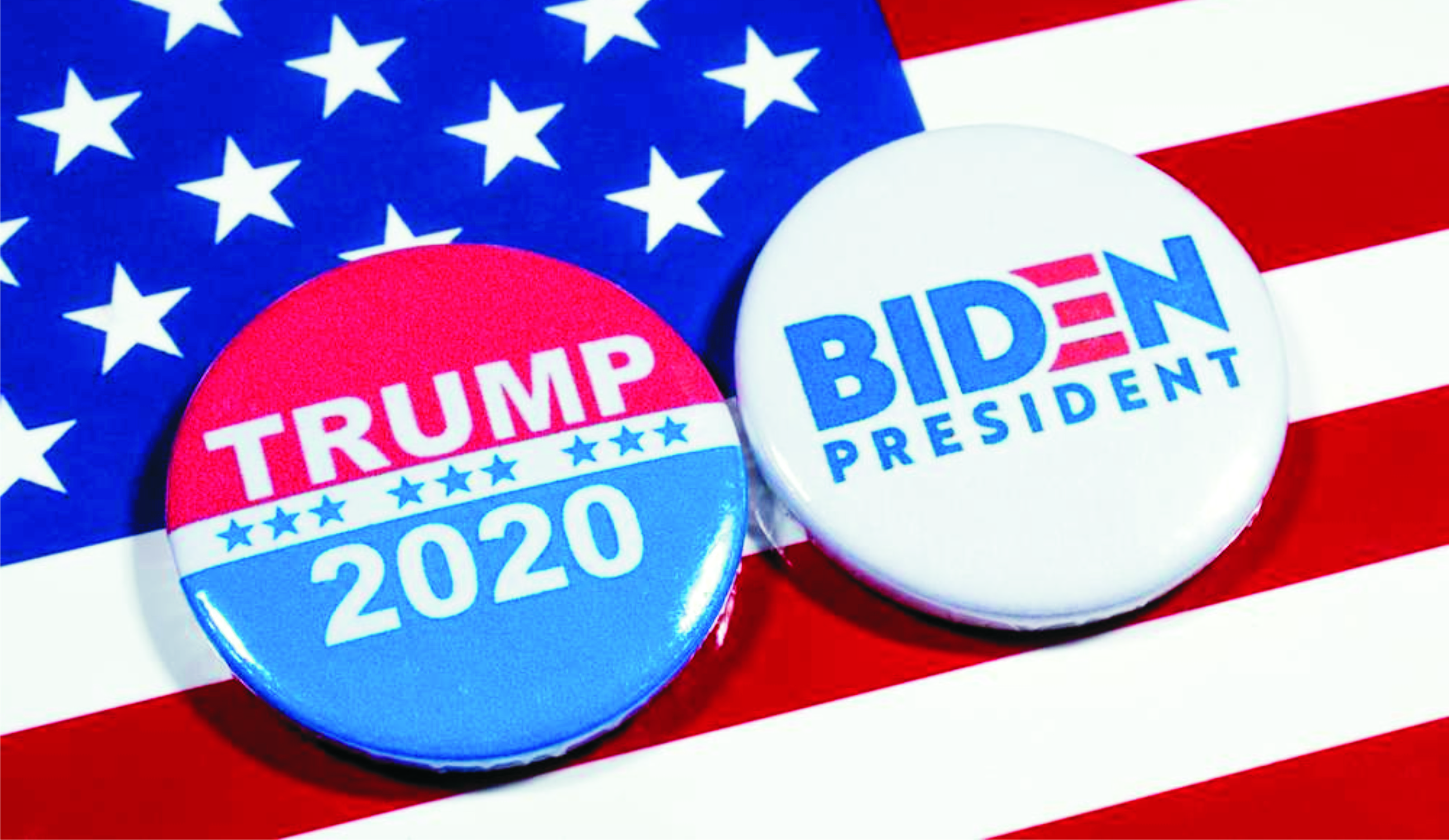Opinion
On 2020 US Presidential Race

The politics of America is taking a new dimension. The suspense and intriguing political scenario in American politics is taking a new twist; giving room for mudslinging of the two political gladiators standing tall in the race. In the history of American politics, this is the first time that so much personal and damaging information is common in the political public sphere.
It is difficult to see the revered American political principles or tenets· degenerate to styles of politics played in some Third World countries. High rate of racial discrimination is unassuming in the present political atmosphere in the United States of America. And it has become a major tool for political party campaigns: Republicans and Democrats, using it to woo the black race to vote for them.
The incumbent President, Donald Trump is still maintaining his Vice President, Mike Pence, on the platform of the Republican Party in the race for the White House come November 3. The camp of Donald Trump is still facing criticism, especially on the handling of coronavirus pandemic.
The camp is aggressively debunking claims of the rival party. The race is becoming interesting and fascinating as the whole world is watching what is coming out from the United States.
On the Democratic platform, Senator Joe Biden has refused to be cajoled and cowed by the antics of Trump’s political smartness. In an unprecedented political tactic, Biden has chosen his female running mate, Senator Kamala Harris from the black race. It is another dramatic style by the Democrats to lure black votes to their political enclaves.
The race for the White House is very tense and public opinion poll is difficult to predict the would-be winner of the presidential election. Joe Biden is not weak politically in calculations and strategies. It is also observed that some Americans are also scared of foreign interference in manipulating the voting system.
Job cut is another political campaign strategy during the electioneering activities. The state of American economy is another critical campaign issue. Every candidate is fighting hard to win the heart of American voters or electorates. International politics is not out of place. As the United States Government under the leadership of President Trump is threatening to withdraw from some international organisations and also stop funding to some international agencies. This has become another soft landing for the Democrats to win the heart of some voters.
Again, the handling of Middle East crisis with Israel and her Arab neighbours by the United States Government is a cause for serious concern. Indeed, some of the decisions by American government in the Middle East have caused diplomatic rows in the world.
This United States presidential election is a litmus test on the unity and integrity of the American people. This presidential election is causing serious threat to the United States of America.
The recent debate by the two main political contenders and presidential hopeful was seen to be unethical and damaging as there was character assassination by the candidates. The worsening political space in the United States is a threat to political democracy in the world.
The onus is on the American citizens to decide who occupies the White House after the presidential election. As usual, the eyes of the world are on the American presidential election. So many documentations and commentaries have been made public on American Presidential election now.
The fierce American presidential debate has caused worry to many political watchers. And indeed, the public perception of present political campaign in America is disheartening and worrisome to the ordinary Americans. The war of the presidential election has so many perspectives to it depending on where the electorates are tilting to.
No going back on the conduct of next month’s presidential election. The unity of United States should not be destroyed but should be maintained after the election as the eyes of the whole world is on Gods Own Country.
Ogwuonuonu, a public affairs analyst, resides in Port Harcourt.
Frank Ogwuonuonu
Opinion
Empowering Youth Through Agriculture

Opinion
Of Protests And Need For Dialogue

Opinion
Tackling Noise Pollution in Nigeria

-

 Politics3 days ago
Politics3 days agoPFN Rejects Call For INEC Chairman’s Removal Over Genocide Comments
-

 Rivers3 days ago
Rivers3 days agoFasthire, PHCCIMA, CIPM Host CareerFest 2026 In PH
-

 Sports3 days ago
Sports3 days agoEnekwechi wins Orlen Cup in season opener
-

 Politics3 days ago
Politics3 days agoHoodlums Disrupt LP-ADC Defection Event In Lagos
-

 Sports3 days ago
Sports3 days agoFalconets, Senegalese Lionesses arrive Ibadan for qualifier
-

 Sports3 days ago
Sports3 days agoSimba open Nwabali talks
-

 Politics3 days ago
Politics3 days agoRemoval From INEC’s Portal, Abure-Led LP Faction Mulls Legal Action
-

 Niger Delta3 days ago
Niger Delta3 days agoTinubu, Jonathan, Diri Pay Last Respect To Ewhrudjakpo

